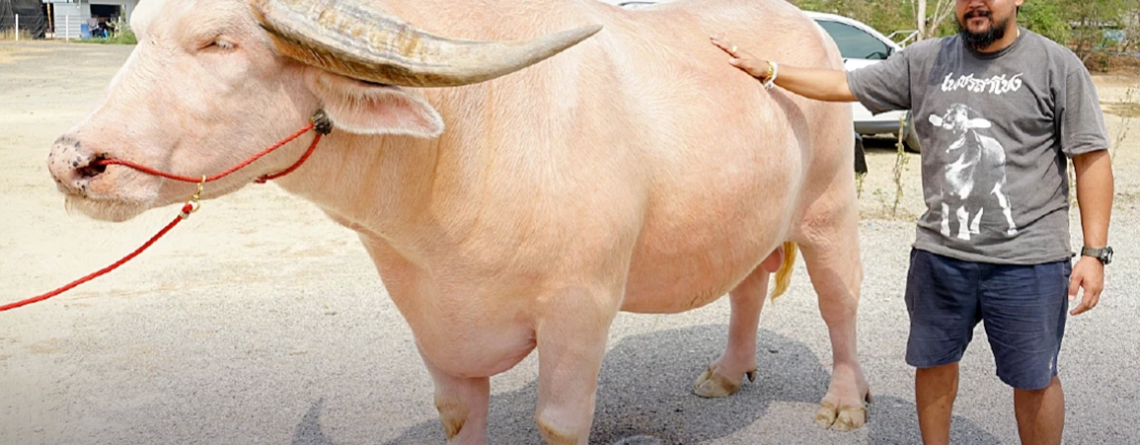Albino Thai buffalo fetches a record RM2.3mil at fair
BANGKOK: Ko Muang Phet, a magnificent albino buffalo owned by Damrongsak Morakot in Phetchaburi province, recently made headlines when it was bought for a whopping 18 million baht (RM2.3mil).
Renowned for its striking beauty and colossal size, the buffalo is known for its remarkable breeding capability because 90% of its offspring will be born with albino traits. This means, nine of 10 calves produced will be albino, which makes it a significant asset in the buffalo breeding industry.
Adding to its fame, Ko Muang Phet also made a mark in the entertainment world, starring as the character Ai Khlaow’s buffalo in the most recent version of the popular “Mon Rak Luk Thung” TV drama.
Despite being just about five years old and standing at an impressive height of 180cm, Ko Muang Phet has earned the title of Thailand’s top giant breeding buffalo, remaining undefeated in competitions for years.
However, it has been retired from competitions to focus on producing new generations.
Recently, Wanasuwan Farm in Chiang Rai caught public attention when it purchased the star buffalo for a staggering 18 million baht – the most expensive buffalo acquisition ever at the 12th Uthai Thani Thai Buffalo Festival held last weekend.
Damrongsak explained how his passion for exploring the potential of Thailand’s buffalo industry led him to Ko Muang Phet.
Starting with the purchase and raising of ordinary buffaloes, Damrongsak gradually built his 9 Morakot Farm in Phetchaburi’s Tha Yang district, which began generating annual profits of up to 8 million baht. Ko Muang Phet, whom he raised and cherished like a child, became the crown jewel of his farm.
While parting with Ko Muang Phet was a difficult decision, Damrongsak hopes its new owner will continue upholding its legacy and contributing to the growth of Thailand’s albino buffalo industry.
He envisions propelling Thailand’s buffalo industry to global recognition, positioning the country as a leader in buffalo breeding and revitalising the industry for generations to come. – The Nation/ANN













Leave a Reply